Traveling to Bali is about a lot more than seeing the sights and soaking up the sun. One of the principal pleasures of a trip to the island is the chance to immerse yourself in Balinese culture. Balinese Hinduism, practically omnipresent in Bali, is among the most notable aspects of the island’s unique culture.
While most of the Indonesian population identifies as Muslim, the majority of Bali’s residents are Hindu. The type of Hinduism practiced on the island differs from other branches of the religion, with unique practices and a singular history.
The Origins of Balinese Hinduism
The history of Bali has long been affected by Indian influence, and Balinese Hinduism is a prominent example of this phenomenon. Most scholars date the arrival of Hinduism in the Indonesian archipelago to the first century AD. Epic Hindu stories similar to those of Southeast India have been traced to Java around that time. While little is known about exactly how the religion spread, it came to dominate the island of Java by the fifteenth century AD.
In the fifteenth and sixteenth century, Muslim invaders from the mainland took over Java and other Indonesian islands. Fleeing religious persecution, many Hindus from Java moved eastward to Bali, marking the origin of Balinese Hinduism.
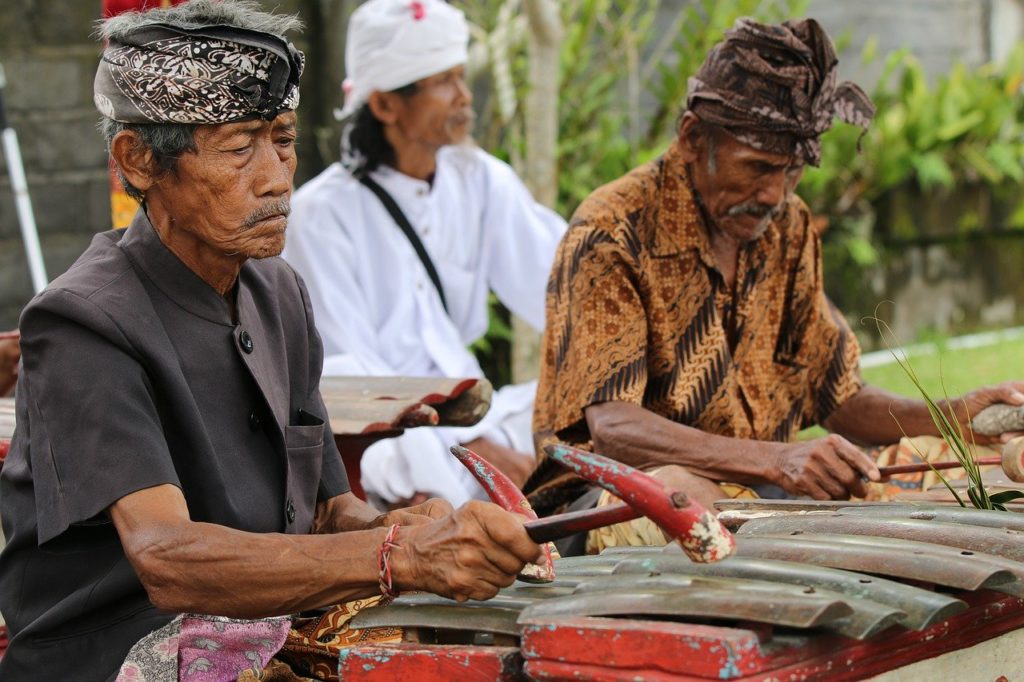
The History Balinese Hinduism
Hinduism came to dominate Balinese culture, and the Dutch control of the archipelago helped mitigate religious violence for several centuries. When Indonesia gained independence in 1945, the new nation’s constitution guaranteed freedom of religion.
In 1952, the Indonesian Ministry of Religion declared that only monotheistic faiths would meet their definition of religion. Balinese Hindus were thereby declared to be without a religion. Rather than accept this fate, in 1958 the Hindus of Bali successfully petitioned for their faith to be considered monotheistic because of their belief in an “undivided one.”
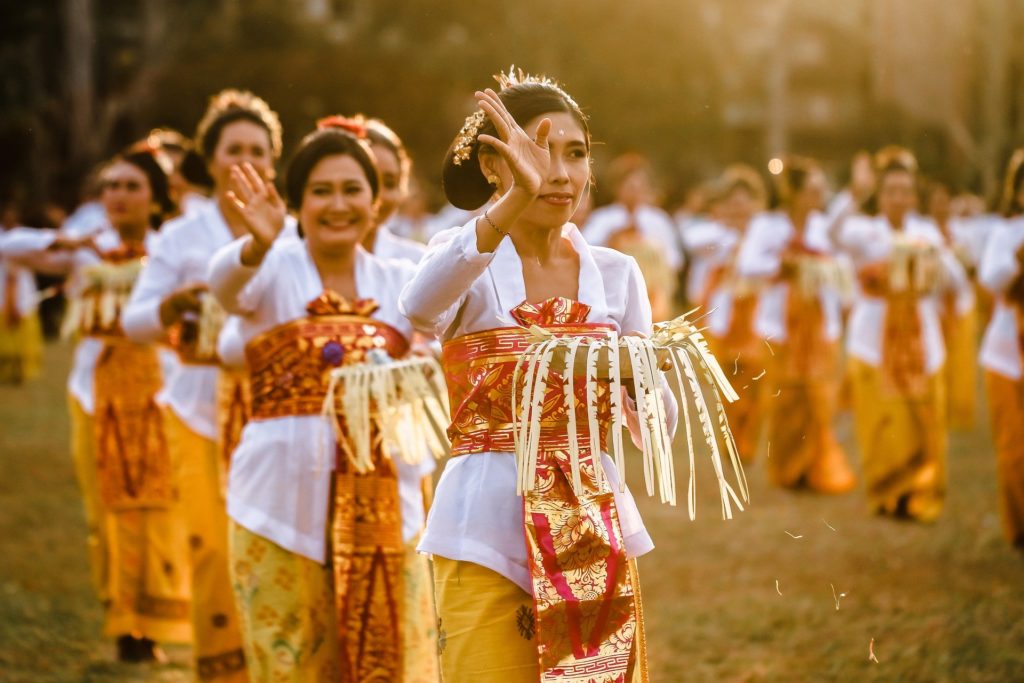
Central Beliefs
Hinduism in Bali revolves around a few central beliefs, some of which are common to Hinduism while others are unique to the island. The Indonesian Ministry of Religion recognized the Balinese belief in one supreme being, of which all other deities are only a part. Balinese Hindus recognize the classical Indian trinity, consisting of Brahma, Vishnu, and Shiva, as well as a number of locally-derived deities.
The ethical values in Balinese religion mirror those of Indian Hinduism, and are typically passed down through families rather than through religious schools. Newborns are believed to contain the soul of an ancestor, and reincarnation holds a central role in the concept of life. Like in Indian Hinduism, a caste system has long been the norm, with different behavior expected from members of different strata (Brahmins, for example, are under especially strict dietary restrictions).
In general, Balinese Hindus avoid eating certain animals, including tigers, dogs, crocodiles, crows, and birds of prey. Seafood, pork, and chicken are readily consumed instead.
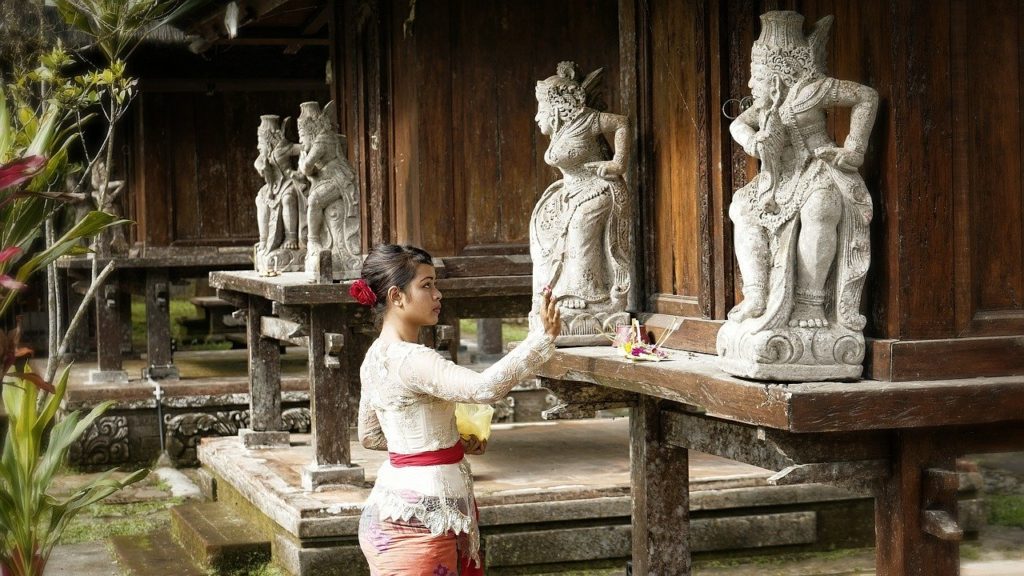
Principal Ceremonies
Balinese Hinduism is characterized by a number of distinct traditions, including ceremonies, processions, and festivals. Each of these play a major role in Balinese culture.
The most important festival in Balinese Hinduism is Galungan, celebrating dharma’s triumph over adharma. In this respect, it is similar to the Indian festival of Diwali. The Balinese festival is not held at the same time as its Indian counterpart, however, since it’s date is determined by the Balinese calendar, which has only 210 days. The spirits of deceased ancestors are said to return to visit the living. On the last day of the celebration, called Kuningan, the spirits are said to depart Earth and return to where they came from.
Nyepi, which typically falls in March, represents the last day of the Balinese year, and consists of a day of silence. For twenty-four hours, practitioners of Balinese Hinduism do not utter a word. The festival is meant to promote meditation and self-reflection. The entire island essentially shuts down, and even tourists are prohibited from engaging in normal, vocal behavior in the streets. Various rituals are practiced in the home throughout the day.
The life of a Balinese Hindu is marked by a number of special ceremonies performed as they age, meant to purify the soul and propitiate evil spirits. A baby is considered to be a god for its first forty-two days on Earth and is not allowed to touch the impure ground. At puberty, a young person’s upper canine teeth are ceremoniously filed until they are of even length.
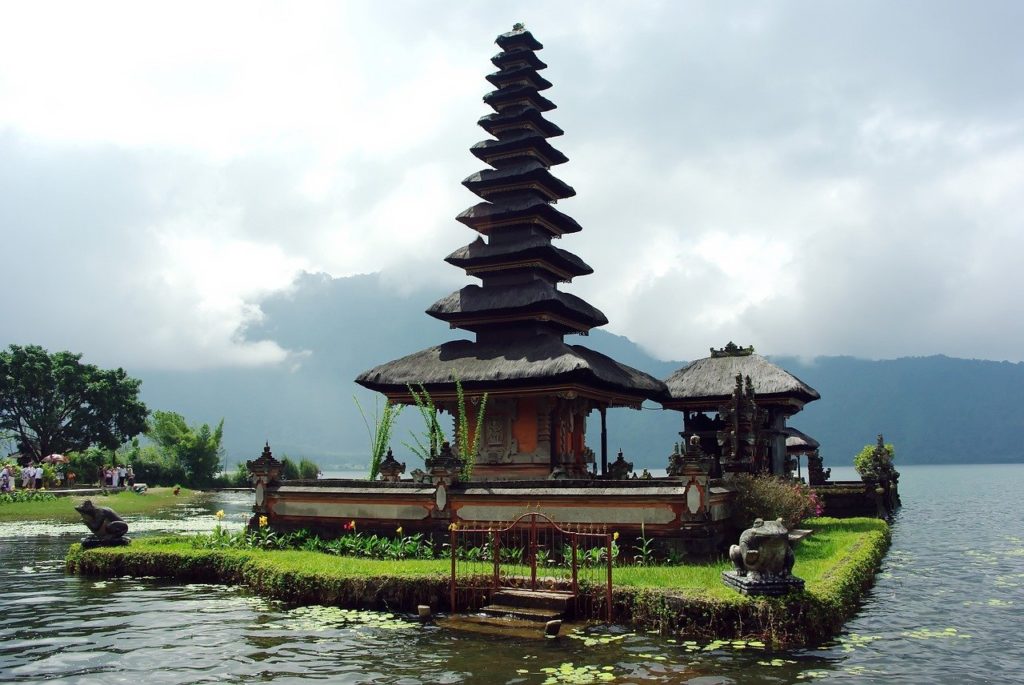
Main Temples
Balinese Hindu temples, also called Puras, are designed in accordance with religious beliefs. They are generally open, outdoor spaces, interspersed with gates, shrines, pavilions, and towers. Temples are typically divided into three mandala zones, each of which has its own role in adherents’ worship practices.
There are over 20,000 temples in Bali. The most famous is the Mother Temple of Besakih, which is the largest and holiest on the island It is built into the side of Mount Agung, a giant volcano in Eastern Bali. While it continues to attract large numbers of Balinese faithful, the majority of visitors in the modern era are foreign tourists.
Taman Ayun is another temple renowned for its beauty. While visitors cannot enter the temple itself, the gardens are gorgeous, as is the view of the structures from outside.
The Ulun Danu temple sits alongside a beautiful lake, and often juts out into the water. The distinct setting and centuries-old architecture make it a uniquely magnificent place.
You should check out these temples on your trip to Bali, not just because they’re beautiful, but also because they represent the lodestones of the central component of Balinese culture: Balinese Hinduism.
The best way to learn more about the balinese culture, traditions and religion is to hire an official guide for a day or more and let him guide you through the island of gods. Check out our official guides here.

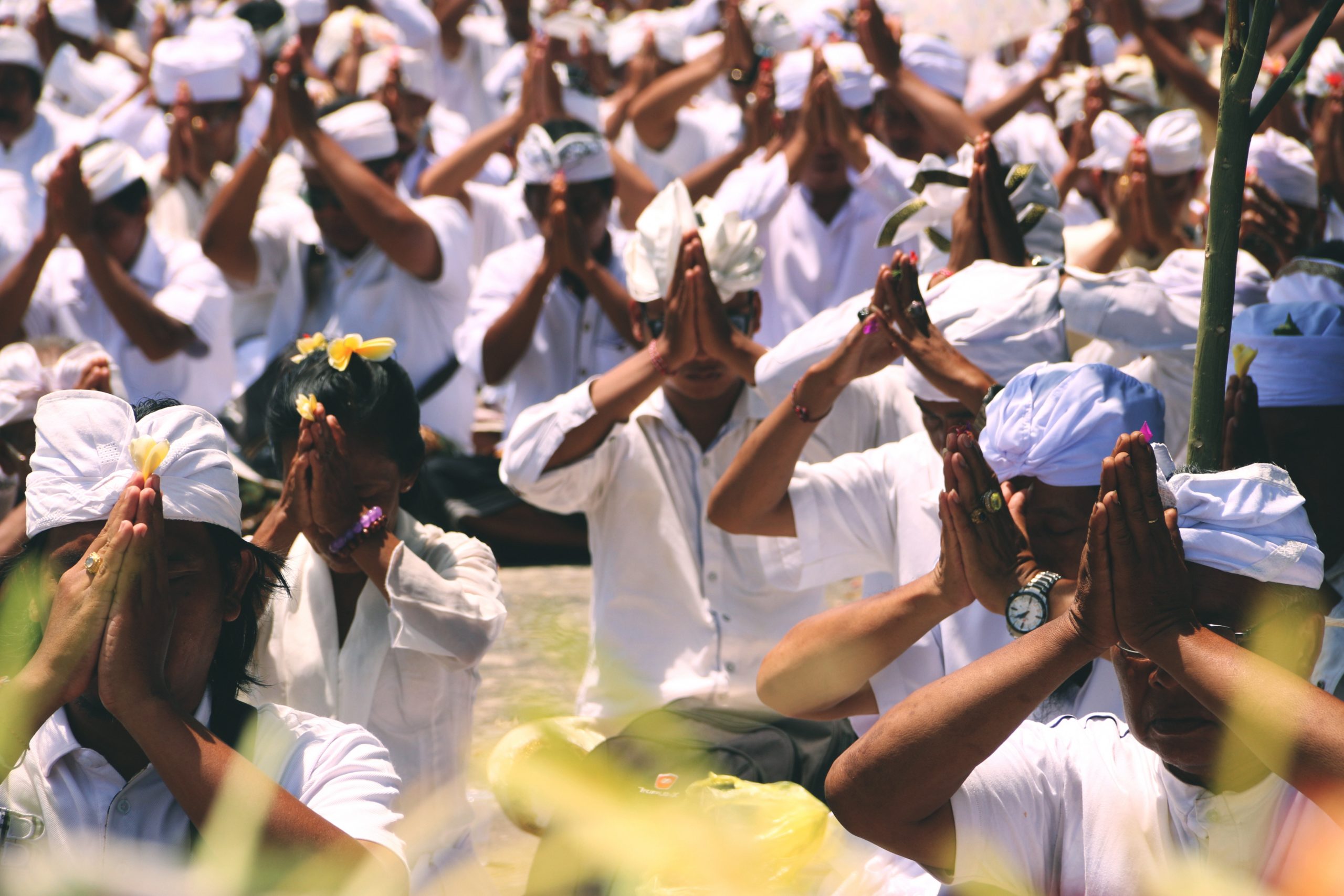



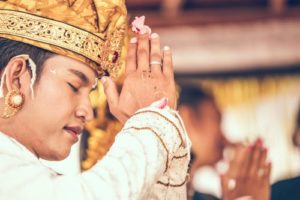
Add a comment